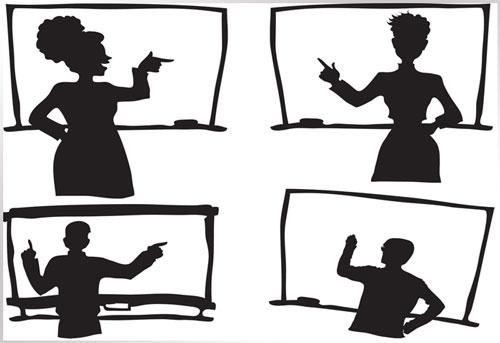Widgetized Section
Go to Admin » Appearance » Widgets » and move Gabfire Widget: Social into that MastheadOverlay zone
Teaching Impact: Sharing Your Stories
The views expressed are those of the author and do not necessarily reflect the views of ASPA as an organization.
By Thomas Bryer
January 16, 2015
 In 2014, when I initiated this new column on Teaching Impact, it was a quarterly column. Now in 2015, it is a monthly column. I now have 12 opportunities to impact you, the reader.
In 2014, when I initiated this new column on Teaching Impact, it was a quarterly column. Now in 2015, it is a monthly column. I now have 12 opportunities to impact you, the reader.
One of the first steps in a written column is to know who the readers are. So I begin my first monthly column with a simple request: email me at [email protected] and let me know you are reading.
I write this first column of the year reflecting on death and the meaning of life. Whoa, this is kind of heavy. The start of a new semester is challenging and a little stressful, you might be saying, but whoa! But let me tell you what I am thinking.
Stuart Scott, the well known and well liked ESPN sportscaster, died recently. In listening to the various remembrances, I heard a commentator reflect on the idea that as human beings, we ought to fight everyday for the issues and causes we believe to be just, but when we grow tired and our bodies weak, then we should go to rest and let someone else (or multiple others) pick up the torch and continue the fight. Indeed, we can know our impact as individual people based on whether others who we touched in our lives pick up our rallying cry and continue our fight. For those of us in the teaching profession, clearly we can look to our students to take up the fight, even before our bodies grow weak.
On Jan. 6, my aunt died after a long personal fight against cancer. I wrote a small dedication in my recently published book, National Service and Volunteerism: Achieving Impact in Our Communities: “The chapters assembled here tell only a small part of the story of volunteer impact in the United States and internationally. Though policy makers and budget makers seek empirical evidence of impact, as they should, we can always find impact in a single person’s story. Barbara Bryer, my father’s sister and my aunt, is challenged with cancer. For her benefit and the benefit of my family who is helping her during this time, the American Cancer Society provides volunteer drivers to transport her for daily treatment. There is no chapter about them in this book, and I do not know the names of the volunteers who drive my aunt. This book, however, is dedicated to Barbara Bryer and the volunteers whose impact needs no more proof than the reflections in the eyes of those whose lives are being made just a little easier.”
As we think about the idea of impact, then, we might think of it in two ways:
(1) How do we change the lives (values, behaviors, commitments) of other people, on a personal level?
(2) How will our personal legacy as educators grow stronger while we are active in our profession, and how will our personal legacy live on through the lives of our past students and other stakeholders once we are gone?
I want to hear your stories of impact; this column should be filled with your stories. Email me with examples from your teaching, where impact is realized, either through the satisfaction or changed look of a single student, the changed conditions within an entire community or anything in between.
You should also make it a point to write about your stories of impact. An excellent opportunity is at the 2015 Teaching Public Administration conference, convening in June at Franklin University in Ohio. For more information and to submit a proposal, visit http://www.franklin.edu/tpac/.
I look forward to sharing stories of impact, legacy, and change with you throughout 2015.
Author: Thomas Bryer is associate professor and director of the Center for Public and Nonprofit Management in the School of Public Administration at the University of Central Florida. He is the chair of the Section on Public Affairs Education in ASPA. His two recent books are published with Lexington Books: Higher Education beyond Job Creation: Universities, Citizenship and Community (2014) and National Service and Volunteerism: Achieving Impact in Our Communities (2015).


Follow Us!